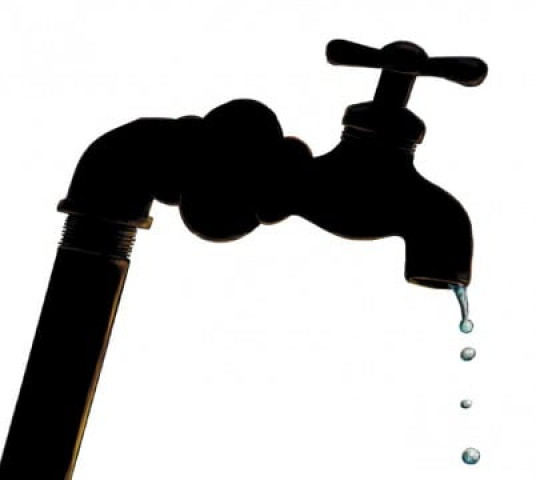Damloti’s wells — an asset in mothballs?
Authorities appear disinterested in restoring water supply despite ‘potential’

Damloti, located in Gadap Town in Karachi's suburbs, is home to 16 wells that constitute the metropolis' first water supply system. Yet the area faces water shortages and its residents, mostly farmers, have to drill boreholes into the ground to fulfill their water needs, laments Haji Ahmed Baloch, an area resident.
This is even after the groundwater level rising in Karachi and its suburbs, replenishing the historic wells enough to supply large quantities of water daily, according to a Karachi Water and Sewerage Board official who has requested anonymity. "This can alleviate the water crisis in the city," he points out, while claiming that the wells' revival has been put on the backburner for years by the Sindh government and KWSB, both of whom deem the undertaking "unprofitable".
From the pages of history
The age-old conduit system was built by the British in 1881 to supply water to what are now collectively called Karachi's old city areas. Initially, a few wells were constructed for supplying 5 million gallons of water daily (MGD) and the capacity was later enhanced to 20MGD.
By then, it comprised 16 wells alongside the Malir River, a 32-kilometre-long pipeline connecting the Damloti wells to Lines Area and filtration galleries - structures built to expedite the transfer of water to and from the soil.
In 1970, though, the supply from the wells dropped to 16MGD, before they were eventually made non-functional in 1980, reportedly due to illegal sand mining at the Malir riverbed as well as the lack of rain.
What went wrong?
While illegal sand mining on the Malir River's bank had been a common practice since 1960, it was prohibited near the filtration galleries, says the KWSB official. However, he claims, with the backing of the police and influential persons, scores had started sand mining around the filtration galleries by 1976.
As a result, the groundwater level began to fall, affecting the water supply from the pre-Independence conduit system, he explains. "Sand mining continues to be menace in the area, while law enforcers play the role of silent spectators."
Presently, just one of the wells is functional, supplying 5MGD of water to a nearby KWSB staff colony. Of the rest, eight wells are flooded and seven remain non-functional.
Little hope
But the groundwater level has risen noticeably following heavy rains in the city, and you can get water by just digging 60 feet deep, according to Baloch.
Baloch explains that most residents there practice agriculture, with farmers mostly relying on drilling boreholes or installing water suction pumps to irrigate their fields.
"There is no water supply system here for a population of 16,000. Without constructing wells on our own, what option do we have other than to drill boreholes?" he questions.
Baloch demands the KWSB revive the wells so that water can be supplied for all purposes to Damloti's residents.
On the other hand, a KWSB engineer, who has asked not to be named, maintains that a project for utilising groundwater to meet Damloti and Memon Goth's water needs has been under consideration for years.
According to him, they had drilled holes in the ground for the initiative in 2006 but found the water level below 500 feet back then.
"And now, due to the lack of rain and sand mining, it seems near impossible to revive the conduit system," he maintains. "The groundwater level only rises when there are heavy rains; otherwise it remains well below the required amount."
He further points out that farmers installing water suction equipment as much as 400 feet to 500 feet in the ground have added to the problem, adding that the KWSB had once approached an international consultant on the matter who, too, deemed it unprofitable.
The Express Tribune tried to approach KWSB managing director Asadullah Khan multiple times but he remained unavailable to comment on the matter.
Published in The Express Tribune, November 2nd, 2020.



















COMMENTS
Comments are moderated and generally will be posted if they are on-topic and not abusive.
For more information, please see our Comments FAQ